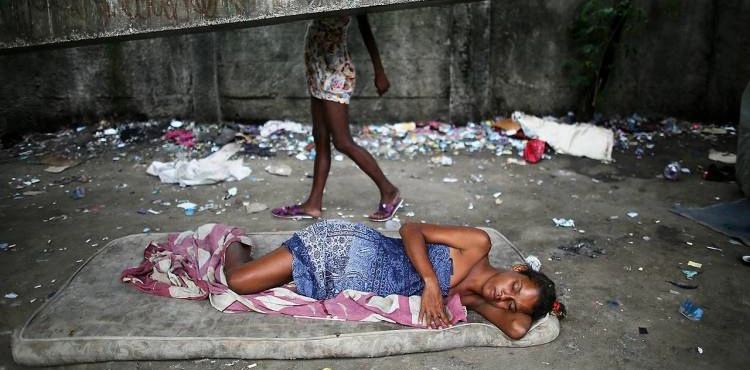Valkyria Ferrera has one wish for 2021, which is to extend the payment of government allocations it receives, such as 68 million Brazilians, to be able to withstand during the Covid-19 pandemic.
But the government declared that it would be impossible to continue with this huge program, which is vital for the poor but very costly for a country that has reached a critical level of debt and public deficit.
"Without this money, I wouldn´t have enough food," Ferrera, a 35-year-old mother of three who lives in a favela in Santa Luisa, Brasilia, told AFP. "If the government doesn´t decide to extend the payment of this aid, I don´t know what to do." 2021 will be very difficult for me. "
On Tuesday, it received the last batch of the "Oxelio Emergencial" (emergency aid) program, one of the most generous programs in the world during the pandemic, under which it paid 600 riyals (about $ 115) a month to a third of Brazilians between April and August. , Before halving the amount during the last four months of the year.
With the start of January, Ferrera will find herself without income.
By pumping nearly $ 45 billion into the economy, this aid program contributed to the recovery of GDP in the third quarter (+ 7.7 percent), pushing the country out of recession after falling 1.5 percent in the first third. And 9.6 percent in the second trimester.
The government now expects a 4.5 percent decline in the largest economy in Latin America for the year 2020 in a country with more than 14 million unemployed people and about 195,000 deaths from the Coronavirus.
It seems that a return to normalcy is still far away with the outbreak of a second wave of the epidemic and an alarming delay in the start of the vaccination campaign for the population without specifying a specific date for that, while it began in Europe, the United States and neighboring Argentina.
According to the Getulio Vargas Foundation, this program helped lift 12.8 million Brazilians out of poverty (with an income of less than $ 5.5 a day), and 8,8 million out of extreme poverty (less than $ 1.90 a day).
But with the allocations expiring, the level of extreme poverty is likely to be much higher than it was before the epidemic.
Only 19.5 million Brazilians will be able to continue getting the social bottom line under the "Bolsa Familia" program set up by left-wing President Luiz Inacio Lula da Silva in 2004.
Far-right President Jair Bolsonaro, whose popularity has risen thanks to the Aid to the Poor Program, said allocations should stop because “Brazil can no longer afford” such a level of debt.
Through this aid program and other expenditures, especially those directed at companies, the country has allocated 10 percent of its GDP to support the economy.
Public debt accounted for 88.1 percent of GDP in November, compared to 75.8 in December 2019.
"Brazil is between a rock and a hard place, because there are market pressures on the one hand and growing poverty on the other," said Marcelo Neri, director of the Social Policy Research Center of the Getulio Vargas Foundation.
"The government would have had the resources to extend the aid payment if the debt had only resulted from the epidemic," said Alex Agostini of the consulting firm Austin Wright.
"The problem is that Brazil has been in a fiscal deficit since 2014," he said.
Independent economist Felipe Keyrouz believes that cutting aid may be more harmful than over indebtedness.
"This aid program has a multiplier effect, as it creates jobs, increases consumption, and prevents GDP from further decline," he explained.
Ironically, the epidemic forced Economy Minister Paulo Geddes, who belongs to the extremist liberal, to "implement a Keynesian policy on a large scale" and postpone the reforms demanded by the business community, according to Marcelo Neri.
So, Bolsonaro will have to do a good job of playing on the balance rope to get the support needed in Congress to pass reforms in 2021 without abandoning the poor, dependable voters for re-election in 2022.












